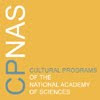From: Richard Twine
Date: Fri, 9 Mar 2007 10:46:18 -0000
Hi everyone,
Some initial thoughts on Session Two.
I'm reminded of the sociologist Mike Michael describing the novel scientific construction of 'bespoke' (as in custom made) animals, which makes me think of the 'newness' or otherwise of animal biotechnology. Clearly in livestock breeding notions of design (a humanist providence perhaps) are rather old, but technologies of genetic modification/biopharmaceuticals/cloning arguably introduce new possibilities of re/design, rationalisation and standardisation not seen before. An approach to materiality that we perhaps see in other scientific domains as well, cosmetic surgery and nanotechnology for example. Is there a relationship I wonder between the movement of artists into the lab and this new bespoke value toward materiality in some areas of contemporary science?
Is the role of the scientist changing? - for example do bespoke values encourage technical responses to political issues - I'm thinking of the cosmetic surgeon who helps (or tries to) the dysmorphic individual pass socially in terms of bodily (gendered and so on) performance, or the animal genomics scientist who constructs the possibility of a marker assisted selection to produce less aggressive, more docile livestock animals.
What happens when the artist enters the scientists' space and starts working with the same materials as the scientist? What is the relationship between artist intrusions here and those by anthropologists/social scientists/ethicists? Why are we there, will we 'go native'? I write as a sociologist who increasingly attends animal science conferences, reads animal science journal articles and joins animal science academic associations. This is Latour's notion of the hybrid academic for sure, but what are the consequences of this hybridity? Moreover to what extent do we become mimetic of scientists? - are we then subject to similar ethical/regulatory concerns?
Are we there to promote the social and ethical robustness of science, are we there to further our own discipline, and/or are we in a certain way of instrumental value to science projects? The 'we' here is false of course as I don't wish to imply that artist and social scientists are necessarily entering laboratory space for the same reasons. But anyhow, hopefully some points worth raising.
Richard
to post a response, click on the "comment" button below
to return to the main page, go to www.visualcultureandbioscience.org
Subscribe to:
Post Comments (Atom)

No comments:
Post a Comment